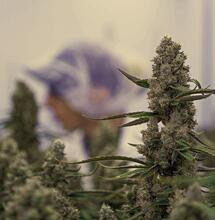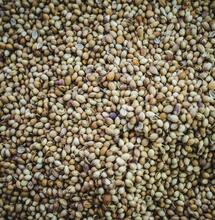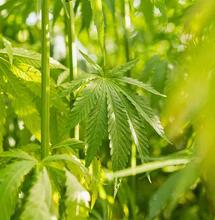Is HHC the New CBD?

HHC is also known as "synthetic cannabis and can be ingested, smoked or vaped, producing effects similar to cannabis. It may be the next big thing after the CBD boom and its controversies.
HHC sellers glorify the elated sensations and relaxation it provides. However, health professionals are concerned that it could be addictive and should be regulated.
What is HHC?
HHC is a semi-synthetic molecule made in a laboratory where THC extracted from the hemp plant is combined with hydrogen molecules.
The effects are found to be comparable to those of THC, which we all know as the psychoactive compound of cannabis. HHC products come in many forms similar to cannabis products and, as such, can be ingested, smoked or inhaled. HHc products have been increasing in demand in recent months.
HHC appeared in late 2021 in the US, spreading to Europe in 2022, according to data from the European Monitoring Centre for Drugs and Drug Addiction(EMCDDA).
Experts say HHC owes much to the boom of CBD products. To meet regulations, CBD must contain a level of THC below 0.2-0.3 per cent, dependent on the country. Because nature cannot rely upon it, ensuring that it meets these levels is often a task that is undertaken in a laboratory and, in practice, has helped other synthetic cannabinoids, such as HHC, to emerge.
How is HHC different from cannabis?
HHC has flooded the market, offering vaping products and edibles that target younger patrons. However, the health impact of HHC is still relatively unknown, and there have been minimal scientific studies.
One big worry is that contamination with extraction remnants or synthetic by-products may present unexpected risks. Traces of heavy metals may also be present.
HHC's influences are defined as being very similar to THC's.HHC can also impact natural bodily functions like sleep and appetite.
Despite the lack of comprehensive research about HHC, early data indicates that it may have the potential for abuse and dependence in humans. HHC products allegedly have some of the same unfavourable side effects as THC. These include anxiety, memory loss and poor coordination.
HHC is technically not legal. However, sellers have managed to exploit a grey area in the law. Because the drug emerged onto the market recently, it is not in the listed category of cannabinoids, nor is it scheduled under the 1961 and 1971 UN Conventions, and as a result, it is being widely marketed as "legal" THC. Internet data has indicated that HHC use is likely to be more significant than reported.
Several countries have taken measures to prohibit it. Switzerland, France and Estonia have issued a bill to include the substance on their list of banned psychotropic drugs. The legal process to outlaw HHC is also ongoing in Denmark and Czechia.
The number of CBD retailers in France jumped from 400 to 1,800 in just 12 months thanks to HHC and the marketing campaigns promoting it as the legal miracle solution for insomnia, pain, and mental health issues. HHC is also widely sold online, which allows it to bypass any legal framework.
This massively competitive market is predicted to reach €3.2 billion by 2025. It is no surprise, therefore, that HHC has presented a new business opportunity within the industry, with prices coming in at between €6 and €10 for a gram of Flower, higher than equivalent CBD-based products.
More on this topic from Soft Secrets
Delta-8-THC. How "synthetic" cannabinoids are changing the legal market.
THC-O, the synthetic cannabinoid 3 times more potent than regular THC.
Synthetic cannabis 'not medicinal', EU top court says
.








